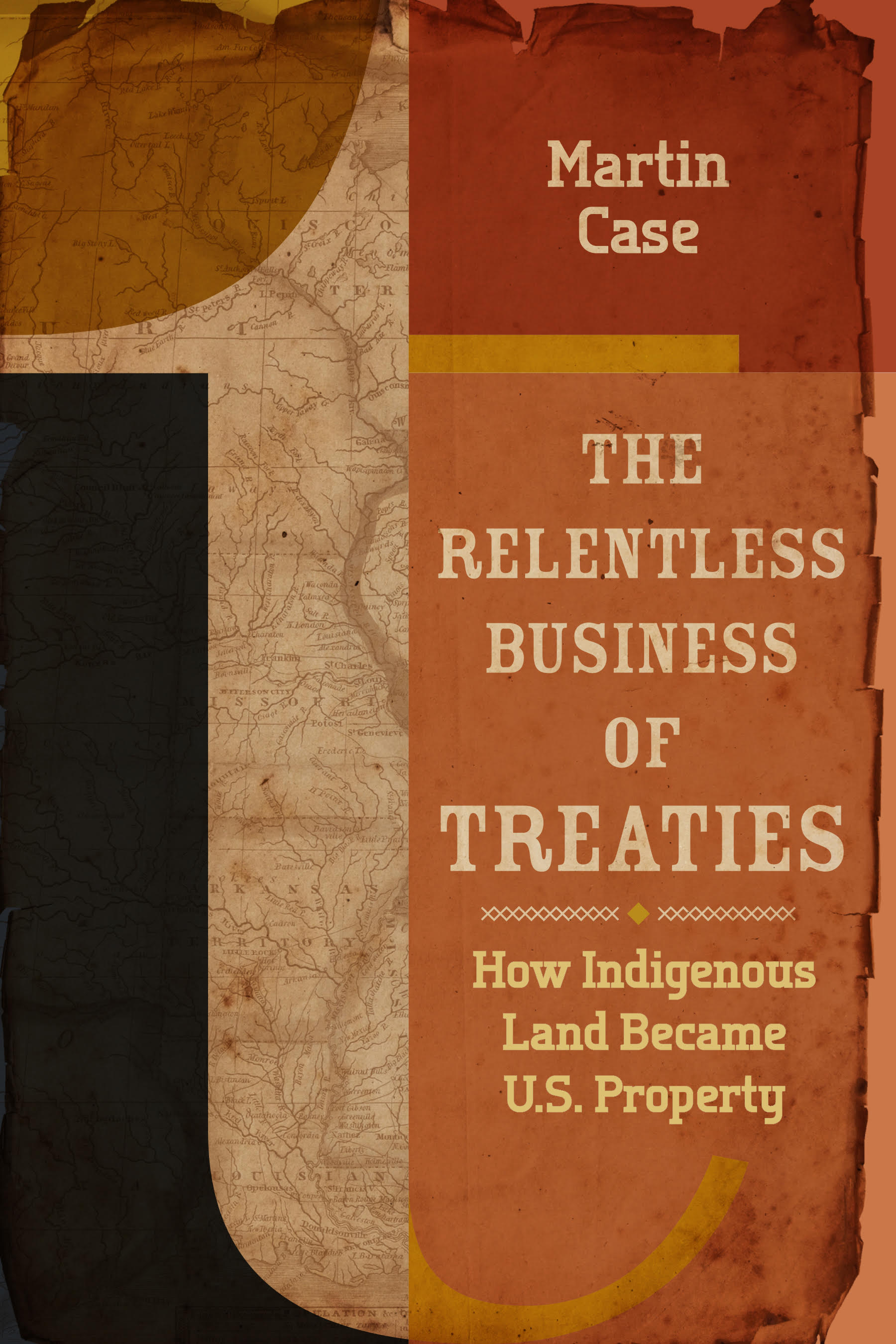The Relentless Business of Treaties:
How Indigenous Land Became US Property
Martin Case (St. Paul: Minnesota Historical Society Press, 2018)
Land cession treaties
 with Native American nations transformed human relationships to the natural world and became a profitable family business. with Native American nations transformed human relationships to the natural world and became a profitable family business.
From the
Minnesota Historical Society Press:
The story of “western expansion” is a familiar one: US government agents, through duplicity and force, persuaded Native Americans to sign treaties that gave away their rights to the land. But this framing, argues Martin Case, hides a deeper story. Land cession treaties were essentially the act of supplanting Indigenous kinship relationships to the land with a property relationship. And property is the organizing principle upon which US society is based.
US signers represented the relentless interests that drove treaty making: corporate and individual profit, political ambition, and assimilationist assumptions of cultural superiority. The lives of these men illustrate the assumptions inherent in the property system—and the dynamics by which it spread across the continent. In this book, for the first time, Case provides a comprehensive study of the treaty signers, exposing their business ties and multigenerational interrelationships through birth and marriage. He describes the groups that shaped US treaty making to further their own interests: interpreters, traders, land speculators, bureaucrats, officeholders, missionaries, and mining, timber, and transportation companies.
Odds are, the deed to the land under your home rests on this system. | | Purchase The Relentless Business of Treaties Here
Praise for The Relentless Business of Treaties
This book is not just good, it is great… Case skillfully guides the reader through the complex tangle of law, cultures, history, and ethics—or more often than not the astonishing absence of even basic human decency— without being simplistic, condescending, or angry… If I were teaching a class in Native American culture, history, or law, I would make this book required reading. In fact, if I would require it for a class in historical research or writing. Reading this book is not like reading history, it’s like reading literature, a tragedy by a writer who understands that history is not at its best a social science but a part of the humanities. And the arts. Read this book.
Roger Welsch
Nebraska History, Summer 2019
This insightful exploration adds much needed depth, clarity, and force to the record of diplomacy between Indigenous nations and the United States. By focusing on the understudied roles of non-Native individuals and interest groups who signed the treaties, Case offers a more nuanced understanding of the concept of property as it was discussed and ultimately redefined -- in a manner that radically transformed and transferred most Native land into non-Native hands.
David E. Wilkins
Hollow Justice: A History of Indigenous Claims in the United States
This book has implications today that every US citizen should grapple with and understand. Although you won't find these stories in textbooks, they show how the United States was built and how some Americans built their fortunes. This country's unvarnished history -- not always pretty, and distant from the mythological narrative that most children learn -- is the one that belongs in classrooms.
Edward Schupman
Manager of National Education
National Museum of the American Indain
From the first fur traders to the historians who spun the spurious yarn, the author dispels the great mythology of America’s westward expansion.
Tadd M. Johnson, Esq.
Professor of American Indian Studies
University of Minnesota Duluth |
